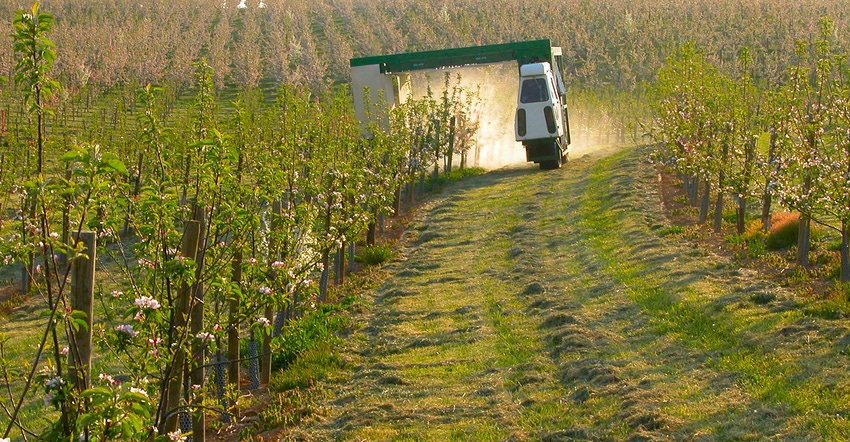November 22, 2019

A new agricultural engineering shop at Penn State's Fruit Research and Extension Center will enhance research capabilities to benefit area growers.
Groundbreaking for the new shop took place Nov. 6 and was made possible in part by funding from the State Horticultural Association of Pennsylvania. The facility is expected to enable the fabrication and testing of machinery and other technologies aimed at helping growers improve efficiency, reduce costs and overcome labor shortages.
Located in Biglerville, Pa., in the heart of Pennsylvania's fruit belt, the Fruit Research and Extension Center, often referred to as FREC, is an important resource for the state's $84 million tree fruit industry.
"Because of the challenges we face with labor availability, it is critical for the future of the Pennsylvania fruit industry that we investigate labor-saving technologies," says Jayson Harper, interim FREC director and professor of agricultural economics in the College of Agricultural Sciences. "With the support of the State Horticultural Association of Pennsylvania, we are making the necessary investment in a facility to develop and test the technologies that growers will use for the next 50 years."
Testing ground for precision ag
Among the scientists whose research will benefit from the ag engineering shop is Long He, assistant professor of agricultural and biological engineering. He studies machinery and automation for orchard operations such as pruning and harvesting, as well as sensor-based precision technologies for irrigation and pest management.
"Currently, we have only a very small area and limited machine tools available for fabrication," he says. "We need to have additional tools and space to build and pretest larger-scale experimental systems before we move them out to the orchard."
Research outcomes achieved at the center are transferred to growers via Penn State Extension educational programs.
"Our goal is to help keep the industry viable by providing technologies and other assistance that reduce costs, minimize water and pesticide use, and increase labor efficiencies," he says. "I'm grateful to the association and the College of Agricultural Sciences for supporting a facility that will help us fulfill this mission."
Source: Penn State, which is solely responsible for the information provided and is wholly owned by the source. Informa Business Media and all its subsidiaries are not responsible for any of the content contained in this information asset.
You May Also Like




